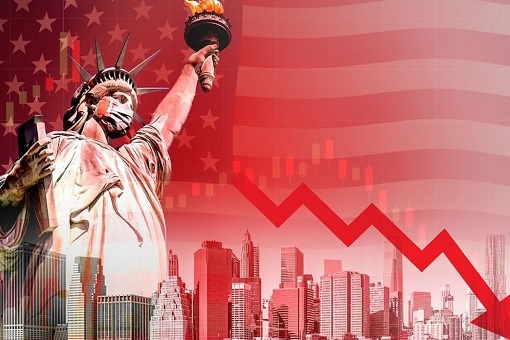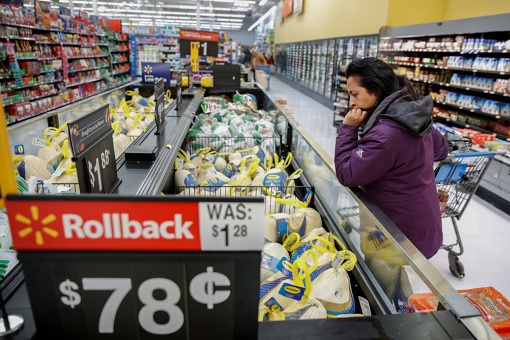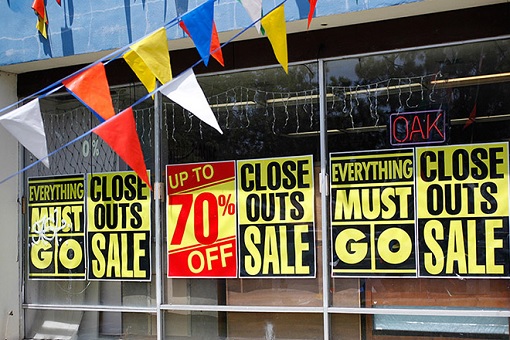Federal Reserve Chairman Jerome Powell isn’t sure if a recession will hit the United States next year, even though many believe it has actually started already. But he is sure about one thing – the inflation has been hitting the world’s biggest economy since the beginning of the year. So, his immediate task is to fight inflation, not recession because of the perception that the recession isn’t here yet.
Depending on whom you ask, the recession in 2023 could be either mild or wild. JPMorgan predicts the recession would be mild. Former Treasury Secretary Lawrence Summers says the recession would be anything but mild. Of course, if you ask “Sleepy Joe”, the U.S. president will say everything is under control and that he doesn’t believe there will be a recession in the near future.
Like it or not, a recession is inevitable next year, despite Powell’s best effort to play down the nightmare. After the Federal Reserve raised its benchmark interest rate to the highest level in 15 years on Wednesday (Dec 14), Powell told reporters – “I just don’t think anyone knows whether we’re going to have a recession or not. And if we do, will it be a deep one or not.”

He obviously lied. In truth, the Federal Reserve chairman knew he had no choice but to continue raising interest rate because that’s the only way to fight against inflation. However, by doing so, it will also spark a recession. However, he was telling the truth that the Fed has no idea how to control the recession – whether it will be a mild or deep one – once it began.
That’s precisely what spooked the Wall Street despite raising interest rates by 50 basis points on Wednesday, lower than previous 75 basis points after a smaller than expected inflation rate of 7.1% in November. The Fed forecasts that they will ratchet up their key rate by an additional three-quarters of a point – to a hefty 5.25% from 4.5% – and keep it there through 2023.
The consensus was to begin slashing interest rate by 1% only in 2024, followed by another percentage point in 2025. The policymakers also downgraded their outlook for economic growth in 2023 to 0.5% from 1.2%. But nobody knows if the projections would materialize. Thanks to years of printing money, the balance sheet in the system still has US$8.63 trillion.

The stock market eventually plunged about 950 points on Thursday, before ending the day with a loss of 764 points. To make matters worse, the Commerce Department said retail sales, which includes spending at stores, online and at restaurants, fell 0.6% in November from the prior month – suggesting that inflation is taking a toll on consumers.
Suddenly, the market has switched from worrying about inflation to the potential of a recession if the Federal Reserve goes too far in hiking the interest rates. Goldman Sachs, convinced that next year will be tougher, plans to cut up to 8% of its employees effective January 2023 – affecting every division of the bank, which had already cut a few hundred jobs in September.
Other banks that have started retrenching included Citigroup, Barclays and Morgan Stanley. But Goldman Sachs’ latest round to cut as many as 4,000 employees speaks volumes about next year’s recession. Now it seems both investors and bankers are worried that the Fed may be willing to bring on a recession just to beat inflation, even though some bet the Fed might chicken out.

The best part is that the U.S. is dragging the European Union into the recession. Already suffering energy crisis and economic shock waves unleashed by Russia’s invasion of Ukraine, the EU is following the U.S. in hiking interest rate to tame inflation. Even though the eurozone’s inflation rate was down from 10.6% in October to 10.1% in November, it was still very painfully high.
Likewise, the United Kingdom’s inflation eased from October’s 41-year high of 11.1% to 10.7% in November. The fact that Russia has no plan to end the Ukraine War any time soon means energy and food crises will continue to contribute to the UK and EU’s inflation. Other allies like Australia and New Zealand similarly projected to enter recession in 2023.
Previously, in an interview with CNN, U.S. Treasury Secretary Janet Yellen said she was “wrong” about how severe inflation would be. She admitted her screw-up – “I think I was wrong then about the path that inflation would take”. She was referring to her remarks last year where she indicated there would only be a “small risk” of inflation, and that it would be “manageable”.

Worse, she said something that was absolutely stunning – “There have been unanticipated and large shocks to the economy that have boosted energy and food prices, and supply bottlenecks that have affected our economy badly, that I didn’t at the time ‘didn’t fully understand’. But we recognize that now the Federal Reserve is taking the steps that it needs to take.”
So, she did not fully understand the economic problem last year, yet she had irresponsibly declared that inflation would be “a small risk,” “manageable” and “not a problem” last year. How sure we are that Jerome Powell fully understands what he was doing in fixing the problem first started by the government and the Federal Reserve itself?
Other Articles That May Interest You …
- Signs Of Global Recession – Walmart & Major Retailers Cancel Billions Of Dollars Of Orders Despite Christmas Holiday
- Investors Got Burnt Again – Dow Lost 1,200 Points, Fed Could Raise Rates By 100 Basis Points As August Inflation Hit 8.3%
- The Worst Is Not Over Yet – Why Inflation & Recession Are Still Alive And The Global Economy Is Still In Bad Shape
- U.S. Plunges Into Recession – But Biden Govt Scramble To Redefine Recession To Create Illusion There Isn’t Any Recession
- Oil Price Could Go Higher & Europe Could Be In Trouble – Putin Might Abruptly Cut Gas Supplies To The E.U. In Coming Weeks
- Recession Inevitable – Federal Reserve May Slap 0.75% Rate Hike To Trigger A Recession To Try Fix Its Own Screw-Up
- Economic & Financial Meltdown Is Here – All Signs Lead To Recession, Stagflation, Jobless And A Repeat Of Dot-Com Bust
- Russia Cuts Off Gas To Poland & Bulgaria – European Gas Jumps 24% As Putin Starts Punishing “Unfriendly Countries”
- Ukraine Invasion – Putin’s Real Intention That Conventional Wisdom Have Failed To Comprehend
- U.S. Sanctions Fail – How Russian Currency Emerges Stronger Than Pre-War With A New Gold Standard
- From Wheat To Oil & Gas – How Russia Invasion Of Ukraine Affects Europe’s Food Supply, And Even Your Loaf Of Bread

|
|
December 17th, 2022 by financetwitter
|


|

|

|

|

|

|




























Very well written article. Well done.